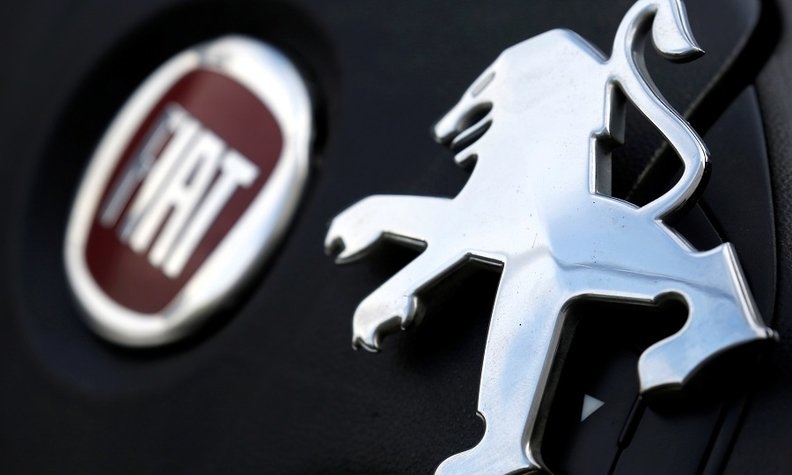
According to Sam Fiorani, vice president of global automotive forecasting at AutoForecast Solutions, a highly competitive North American market means PSA production and sales in Canada and the United States are far away. Following the Fiat Chrysler Automobiles-Groupe PSA (FCA-PSA) merger announced in October, a business case to build and sell more vehicle brands in Canada would probably take some time to develop.
Sam Fiorani stated that there’s not much room available to have another brand here.
And vehicle production in Canada will be a low priority with European leadership, said Kristin Dziczek, Vice President of Industry, Labor and Economics at the Michigan-based Center for Automotive Research.
The merger would create the fourth-largest automaker in the world, but industry analysts and insiders expect to have a limited immediate impact on the automotive industry in Canada.
No one should expect the assembly plants of FCA in Ontario to suddenly start cranking out new Peugeot models or to reach the North American market in the near future for DS crossovers (DS is the premium brand of Groupe PSA), Fiorani said.
“FCA is already promoting six brands here, so it would be difficult to add another brand or two. You’d be competing with the same segments as Jeep if you brought over the DS, “he said. “North America doesn’t have much room to add more vehicles, and if you’re adding crossovers or trucks, you’re already playing into the strong point of FCA.”
Decision-Making Overseas
Carlos Tavares, CEO of the PSA Group, would be the combined company’s chief executive. In the long run, having a CEO making production decisions from Europe rather than in Michigan could make things more complicated for Canadian plants, Dziczek said.
“The[ FCA] CEO is Mike Manley now, but the[ PSA-FCA] CEO is not going to be Mike Manley and decisions are going to be made in Europe, not North America,” she said. “But it’s going to take quite a long period of time, and the North American presence is not a high priority for the near future.” In October, Fiat Chrysler Automobiles and Groupe PSA decided on a merger to create a $65.9 billion (US$ 50 billion) automaker. In 201, the new, combined company would have sold around 8.7 million annual vehicle sales, placing it behind the global alliance of Volkswagen, Toyota and Renault-Nissan.
If the merger goes through, 13 brands would be sold worldwide by the automaker.
The two-car manufacturers see the merger as a way to pool resources in an increasingly expensive period marked by investments in new platforms, electrification, and autonomous vehicle growth, as well as tightening emission standards and increasing trade uncertainty.
Power In Numbers
Mark Nantais, president of the Canadian Vehicle Manufacturers’ Association and representative of Detroit Three automakers in Canada, has said that what they are seeing is a reflection of what it will take to be present in the future of the transportation industry and automobile manufacturing.
FCA has long been seen, in particular, as behind many of its competitors in the development of electric vehicles. It has been searching for years to merge with a competitor, but it has come up short in attempts to get the attention of General Motors and Renault.
Nantais stated that there’s only so much money available and that companies need to start seeking out partnerships where they can gain some leverage in the market for the future.
PSA and FCA said the new company would be able to achieve cost reductions and efficiencies without any plants being closed globally. Despite this promise, some analysts have expressed skepticism that closures at low-volume plants in Europe would be prevented, and unions are worried about collective losses.
Portfolios
There seemed to be no such apprehension in Canada. Unifor President Jerry Dias contrasted the 1998 DaimlerChrysler union with the PSA-FCA merger. Unlike the latter, Dias said the FCA and PSA vehicle portfolios complement each other so it makes sense from the viewpoint of cost-sharing and R&D.
Dias stated that what Peugeot builds is strictly for the European market and that what they make is for the North American market. Unifor represents around 10,000 hourly paid employees at FCA’s assembly plants in Brampton, Ontario, and Windsor, Ontario.
Vic Fedeli, Ontario’s minister for economic development, jobs, and trade, said he and Premier Doug Ford had been talking to FCA executives since the merger was announced and said that they would stay in communication with FCA as things move forward.
Questions Regarding Scale
“We are told that[ the merger] would largely remain unchanged by Ontario,” Fedeli said. “I got the message that it’s all about size. As we see businesses moving around the world, it’s going to be all about scale. “Requests for comments from the Navdeep Bains office, the federal minister for technology, research, and economic development, were not returned.
At the time of the press, it was not clear how the deal would impact the ambitions of the Peugeot brand to return to North America by 2026. PSA said it would be exporting vehicles from Europe or China to North America.
